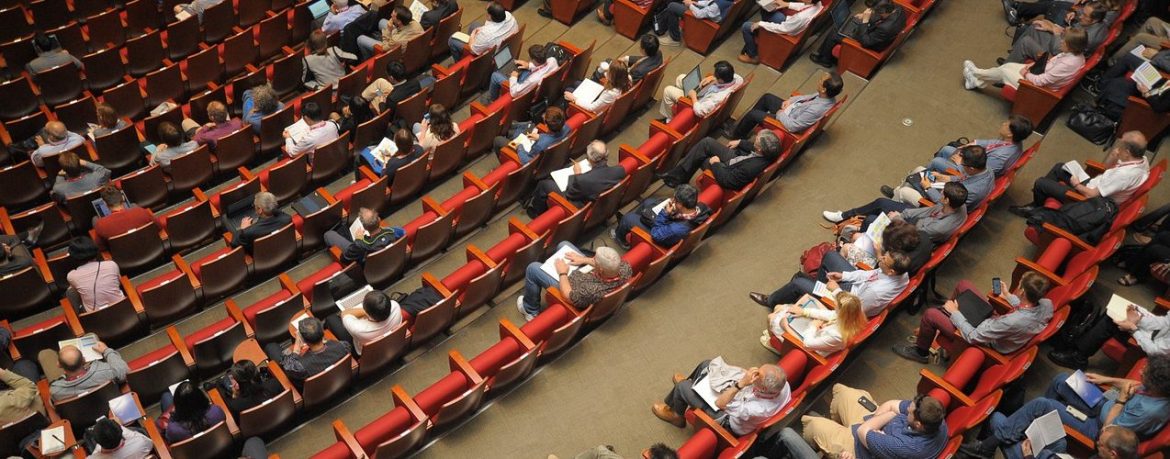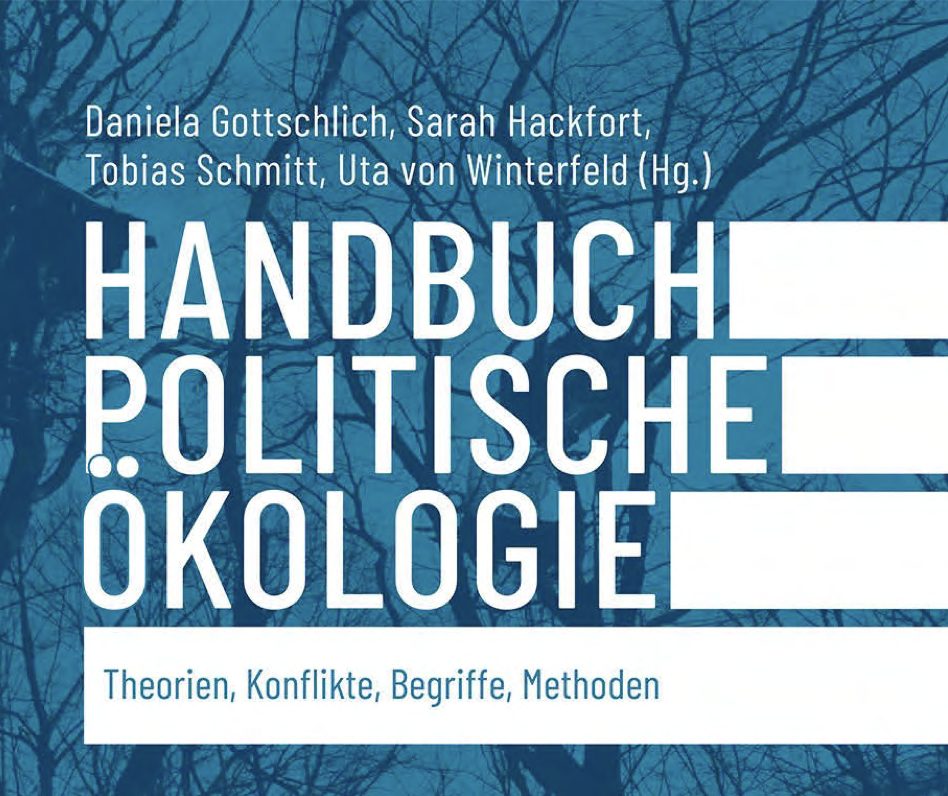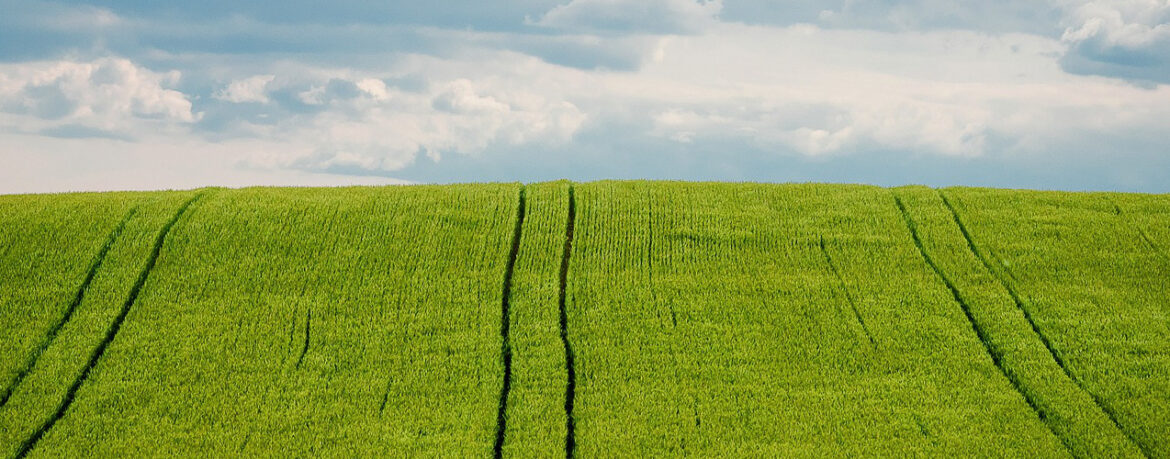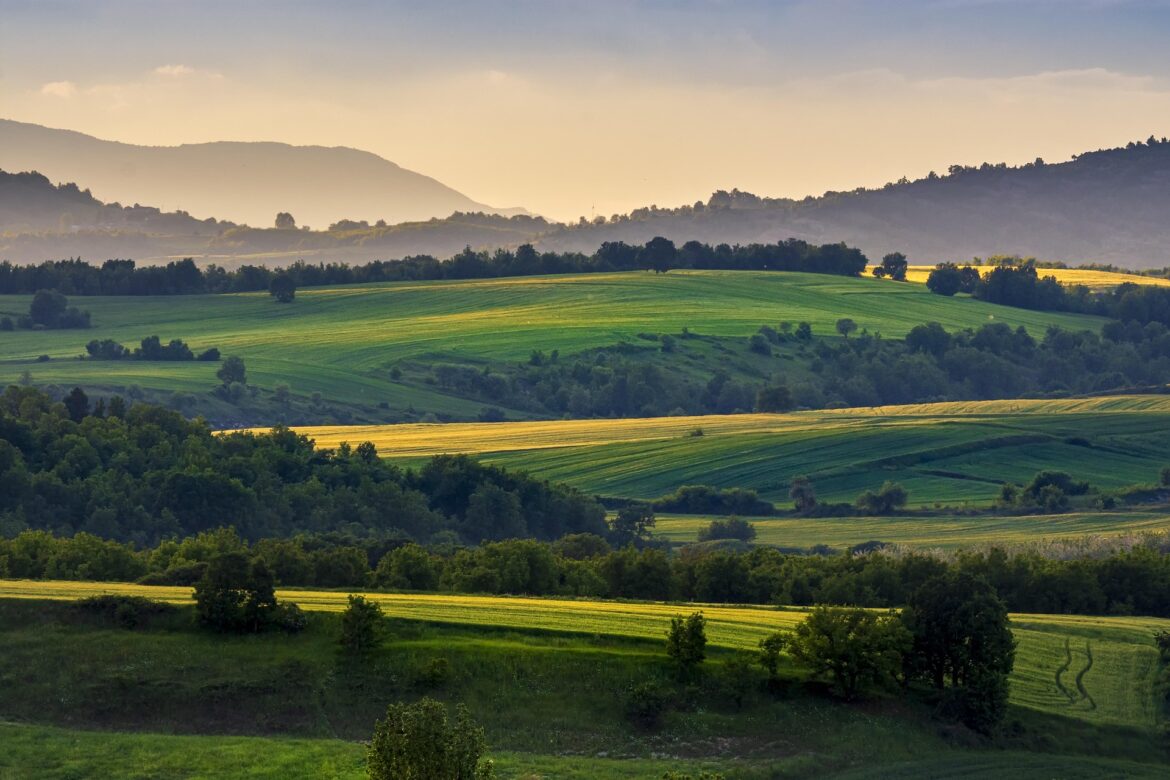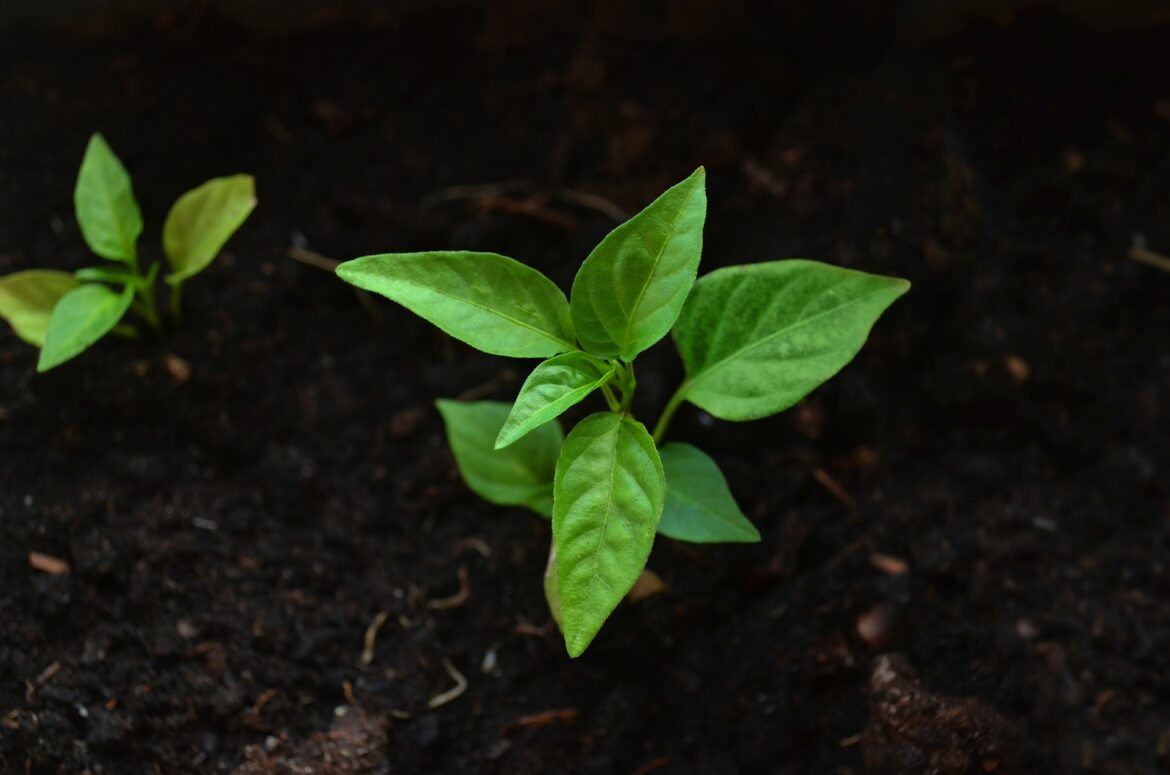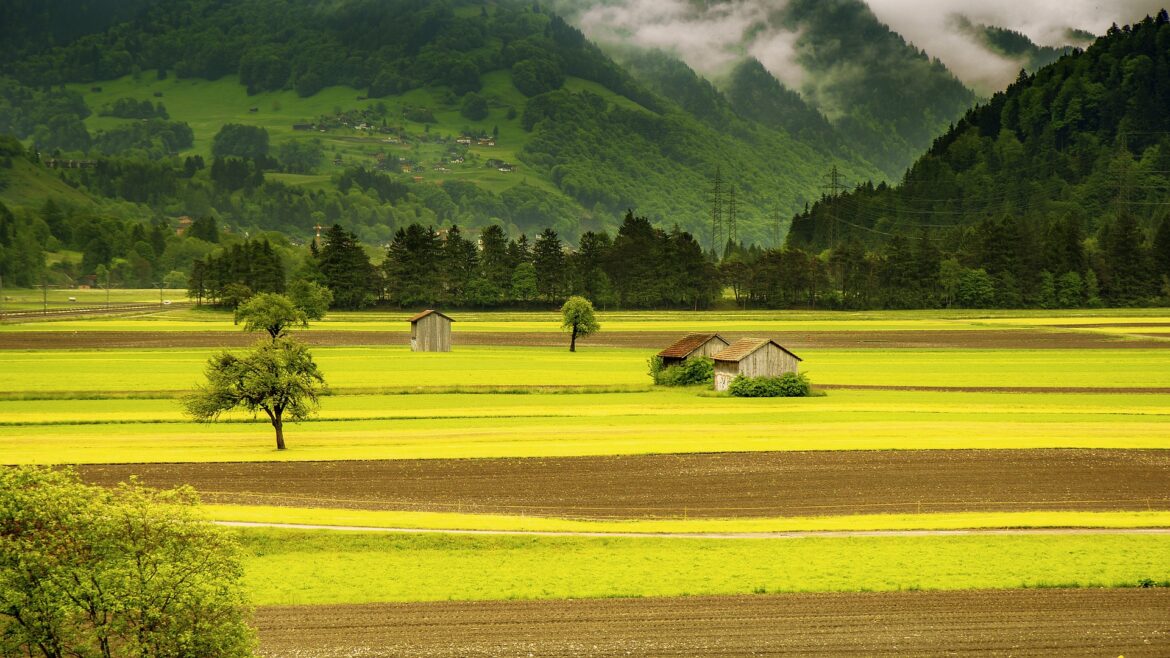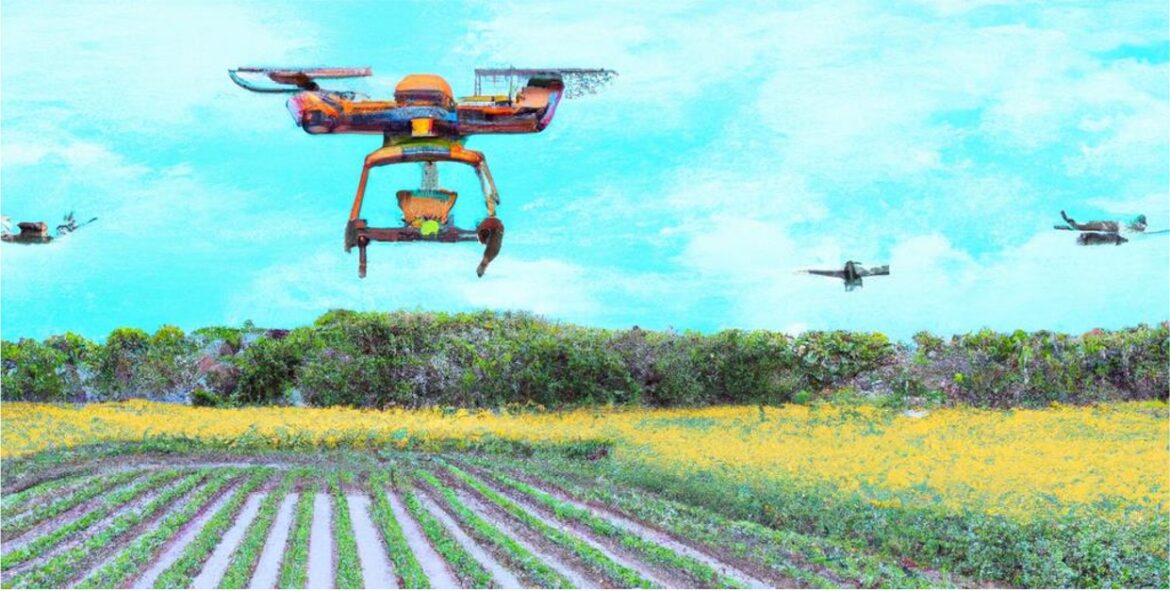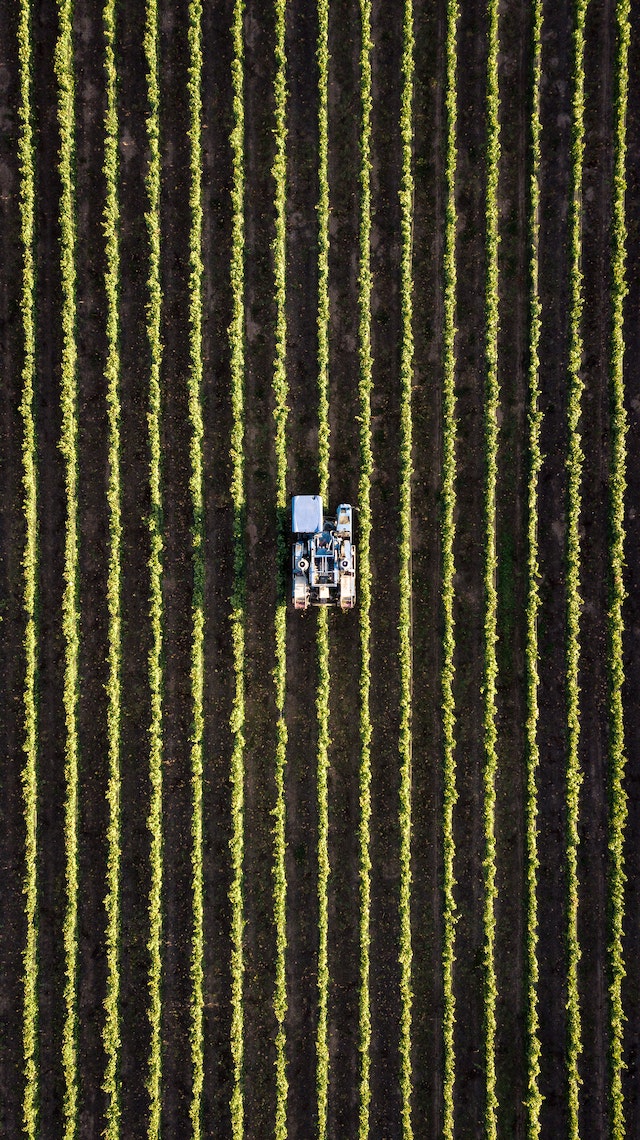On Friday, June 30, Dr. Carlos A. López-Morales and Dr. Miriam Boyer co-hosted a session on “Choice of Technology and Valorization: Defining and Measuring the Bioeconomy” at the 29th IIOA Conference in Alghero, Italy.
The session contributed to the panel “Input-Output Modeling: Sustainable Production and Consumption Policies” and was held at the University of Sassari.
Events
Sarah Hackfort: Book presentation and Workshop on “Handbuch politische Ökologie. Theorien, Konflikte, Begriffe, Methoden “
How to deal with the climate crisis is highly controversial. The dominant strategy seems to be attempts to decarbonise the economy. Emblematic here is the expansion of renewable energies and the switch from the combustion engine to the electric car. But much research shows that the ecological crisis is dealt with inadequately, domestically and to the detriment of the global South if purely technological solutions are pursued. The research approach of political ecology offers a critical perspective on current developments and asks about social mechanisms and drivers behind the climate crisis.
On Tuesday 27 June 2023, the book “Handbuch politische Ökologie. Theorien, Konflikte, Begriffe, Methoden” was presented at Republikanischer Klub in Vienna. Sarah Hackfort, together with the three other editors and participating authors, presented important insights of political ecology that can be used to better understand current developments.
In a workshop on Wednesday, 28 June 2023, the discussion on the relevance and added value of a political ecology approach was further deepened.
The event was organised in cooperation with the Institute for Political Science at the University of Vienna, the Institute for Development Research and the Institute for Social Ecology at the University of Natural Resources and Applied Life Sciences.
The presented book is published open access and can be a downloaded here.
Talk by Sarah Hackfort: “On Innovations and Inequalities – Digitalisation and the Challenge of Sustainable Agriculture”
On Thursday, June 22, 2023, Dr. Sarah Hackfort will be the keynote speaker at the international conference “On Sustainable Food and Biomass Futures: Localised approaches to agricultural change and bioeconomy”. She will give a talk on the topic “On Innovations and Inequalities – Digitalisation and the Challenge of Sustainable Agriculture”.
The conference will take place in an in-person format at Eberswalde University for Sustainable Development (Aula, Haus 6, Stadtcampus, Schicklerstr. 5, 16225 Eberswalde). However, there will be options for distance participation.
For further informations and registration please follow this link.
Online – Survey: “Digitalization for Diversity in Agriculture: Exploring Contradictions and Synergies”
This sub-project explores the possibilities and limits of digitization in small and medium-sized regenerative / bio-diverse farming. It poses whether digital technologies with its premise of standardization and automation are fundamentally opposed to bio-diverse farming approaches. Together with Dr. Sarah Hackfort and her research team at the Department of Agricultural and Food Policy at Humboldt University, and in relation to our Canadian sister project “Diversity by Design,” we explore these questions through an online survey, and a participatory workshop with farmers, and representatives from technology development, design, and policy.
Scan code to access the survey via your mobile.
[Bildquelle: Pixabay]
The bioeconomy is a political project that focuses on the capitalist production and
and utilization of nature for the transition from fossil to bio-based economic and
modes of production. The research project BioMaterialities investigates in this
the transformation processes of the bioeconomy in production, reproduction and politics.
politics. One focus is on the valorization of nature through high technologies like
automation, digitalization and biotechnologies.
Many bioeconomy activities have a profound impact on the reproduction of nature.
nature, which can be seen, for example, in the environmental impacts of industrial agriculture or the
degraded soils due to forest monocultures. Bioeconomy strategies do
ecosystems, but also influence how people and households reproduce within a society.
people and households (can) reproduce within a society. This
reproductive side of the bioeconomy has received little attention in bioeconomy research.
focus. The workshop will therefore address bioeconomy transformations particularly with regard to the
the ecological and social dimensions of reproduction. On the one hand,
feminist perspectives on “green” bioeconomy projects with their
transformations and high technologies at the landscape level (e.g.
ecosystem services, agricultural land or forests) and at the molecular level (e.g.
Plant Breeding) are invited. On the other hand, we invite feminist perspectives on “red
bioeconomies” that involve high technologies and their impacts on bodies and
Health.
The workshop will bring together work and perspectives from feminist economics, the
feminist technoscience and feminist political ecology on the bioeconomy and also aims to support the networking of researchers in the field.
[Picture source: Pixabay]
Talk by Sarah Hackfort & Anna Saave: “A Feminist Critique of the High Tech Bioeconomy” at the International Conference of the Center for Transdisciplinary Gender Studies (ZtG)
Talk by Sarah Hackfort & Anna Saave: “A Feminist Critique of the High Tech Bioeconomy”, Nature-Society Relations and the Global Environmental Crisis – Thinking on Climate Change and Sustainability from the Fields of Intersectional Theory and Transdisciplinary Gender Studies, International Conference of the Center for Transdisciplinary Gender Studies (ZtG) at the Humboldt Universität zu Berlin.
[Picture source: Pixabay]
Dreamlike visions of an intelligent, automated food system are widespread today. A vast eco-system of start-ups, alongwith numerous academic research teams, draws on and informs data reserves held by corporate giants while generatingthese so-called ‘innovations’ – and all in the expectation that it will ultimately yield a ‘smart’ food system. Taking issuewith the failure of funding agencies and innovation processes more generally, Dr. Alistair Fraser asks: What is going wrong? The core failures: a problematic cultural political economy mixing with an emerging planetary cognitive ecologyto yield countless and proliferating misconfigured innovations. Is there any route out of this abyss?
Zoom Link: https://hu-berlin.zoom.us/j/61607645505
This event is co-hosted with PLAAS, University of the Western Cape. It is part of the public lecture series “High-Tech Valorization of Nature”, hostedby the BioMaterialities Research Group at Humboldt Universität zu Berlin.
[picture credits: Louisa Prause and DALL E 2]
Online Public Lecture and Discussion: The Immaculate Conception of Data. Agribusiness, Activists and their Shared Politics of the Future
Agribusinesses are among the oldest oligopoly corporations in the world, and their concentration gives them an advantage over other food system actors. Kelly Bronson explores what happens when big data get caught up in pre-existing arrangements of power. Her richly ethnographic account details the work of corporate scientists, farmers using the data, and activist “hackers” building open-source data platforms. Actors working in private and public contexts have divergent views on whom new technology is for, how it should be developed, and what kinds of agriculture it should support. Surprisingly, despite their differences, these groups share a way of speaking about data and its value for the future. Bronson calls this the immaculate conception of data, arguing that this phenomenon is a dangerous framework for imagining big data and what it might do for society.
This event is part of the public lecture series ‘High-Tech Valorization of Nature: (Re)Production, Technology and Politics in Green Capitalist Projects’ hosted by the BioMaterialities Research Group at Humboldt University Berlin.
Join us on November 28, 2022 at 6 p.m. (CET) for a public lecture + discussion with Dr. Kelly Bronson (University of Ottawa, Canada)
Zoom Link: https://hu-berlin.zoom.us/j/69618539542
[source of picture: pexels.com/ Tom Fisk]
PLAAS ACADEMIC SEMINAR: A Digital Revolution in Agriculture? New technologies and the future of the corporate food regime
Dr. Louisa Prause will hold a virtual seminar with the title “A Digital Revolution in Agriculture? New technologies and the future of the corporate food regime” at the Institute for Poverty, Land and Agrarian Studies (PLAAS).
Abstract: Proponents of the introduction of digital tools in the agri-food sector have suggested that digital tools can make agriculture more productive, profitable and ecologically sustainable. Digitalization is supposed to be the solution for feeding a growing population while minimising the negative impacts on biodiversity, soil health and the climate.
Based on fieldwork in Germany and South Africa, Dr Louisa Prause brings together the food regime approach and critical technology studies to argue that rather than a revolution in agriculture, digitalisation deepens certain features of the existing food regime such as the retail sector’s control over global commodity chains, a high degree of oligopolistic corporate power and labour displacement. Pause will offer thoughts on how digital tools might be designed and used differently in order to foster a socio-ecological transformation of the corporate food regime.
Seminar details:
Date: 22 November 2022
Platform: Virtual
Time: 13:00 – 14:00 (Central African Time/ Central European Time)
11:00 – 12:00 Greenwich Meridian Time (GMT) (Ghana)
14:00 East African Time (EAT) (Tanzania)
Registration:
Link: https://www.plaas.org.za/digital-revolution-seminar/
[source of picture: pexels.com/ Tomas Anunziata]
Talk on FAO’s Conference: Opportunities and Challenges in Digital Agriculture: Global Patterns and Policy Issues on the Way towards Sustainable Agriculture
Sarah Hackfort will speak at the FAO’s Global Conference on Sustainable Plant Production (GCP): Innovation, efficiency and resilience, 2-4 November 2022. In the thematic session 6: Mechanization and Digitalization, she will talk on the topic of “Opportunities and Challenges in Digital Agriculture: Global Patterns and Policy Issues on the Way towards Sustainable Agriculture”.
Link: https://www.fao.org/documents/card/en/c/cc2667en
[source of picture: pexels.com]
